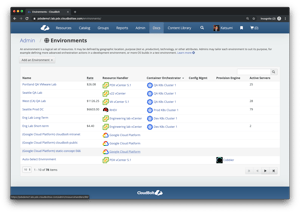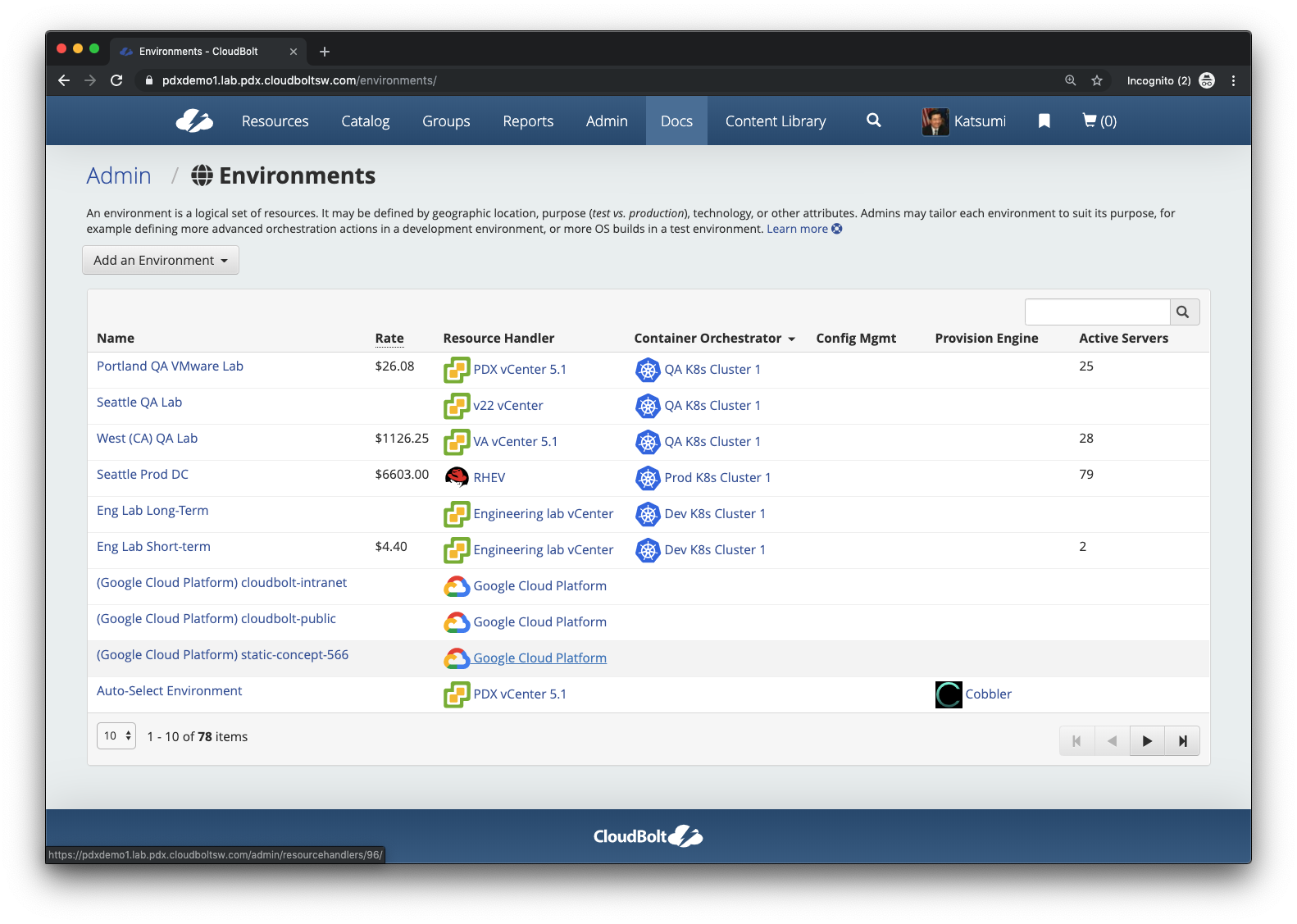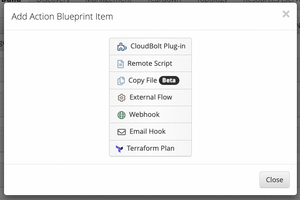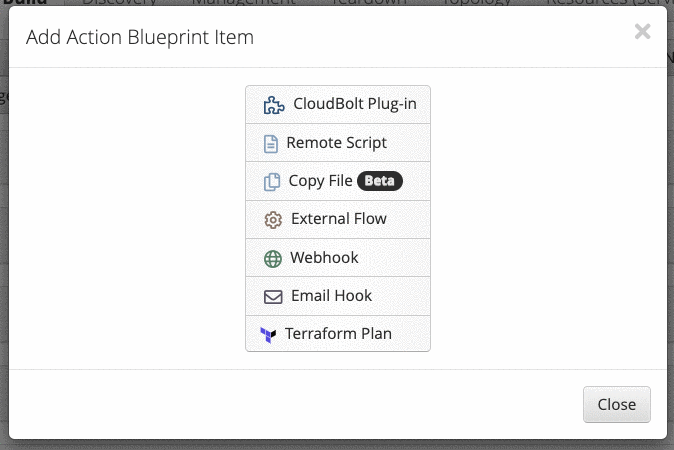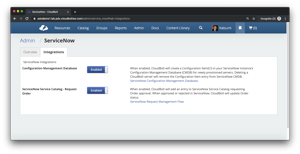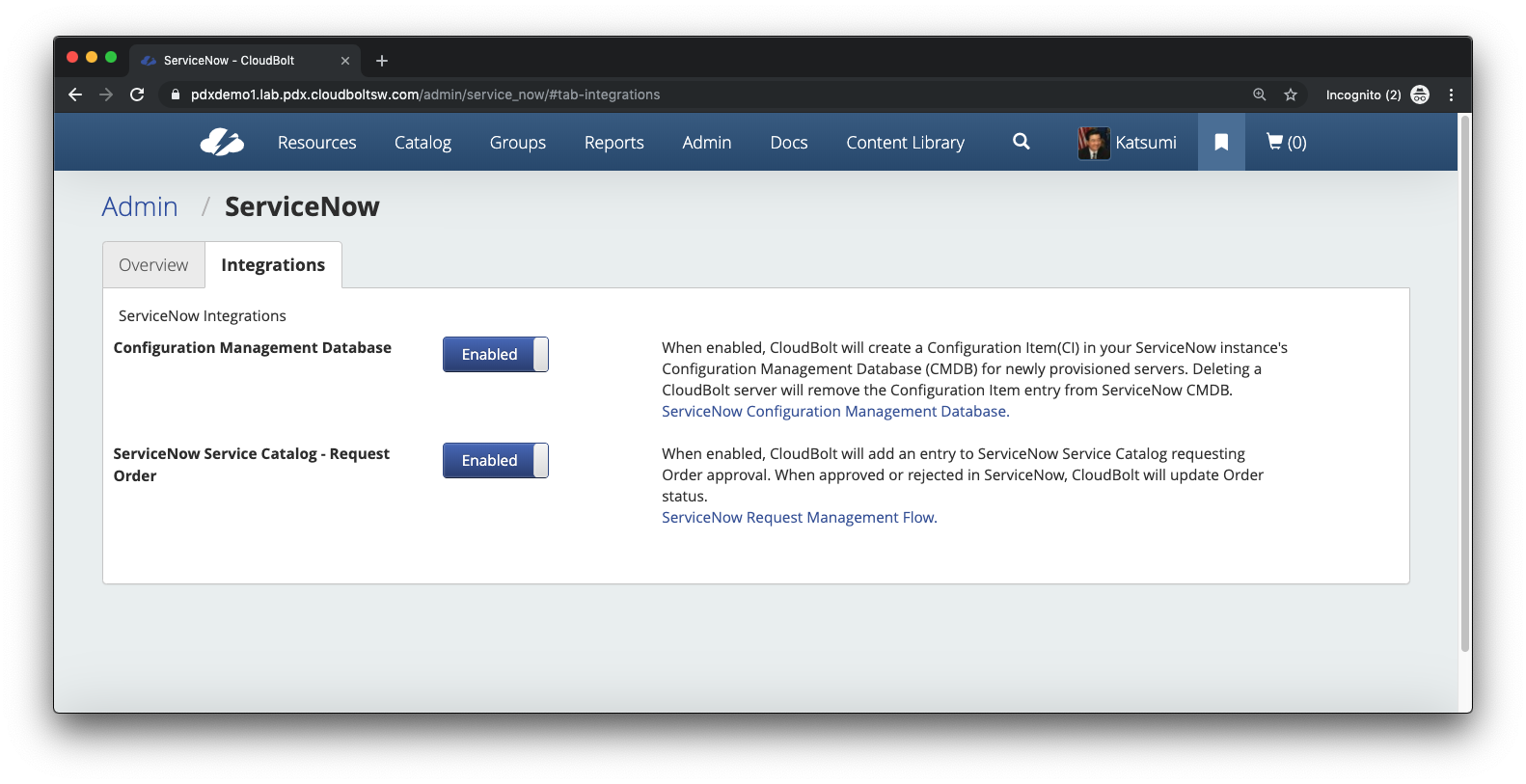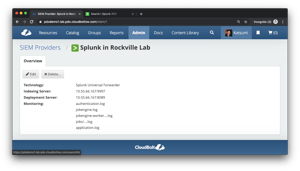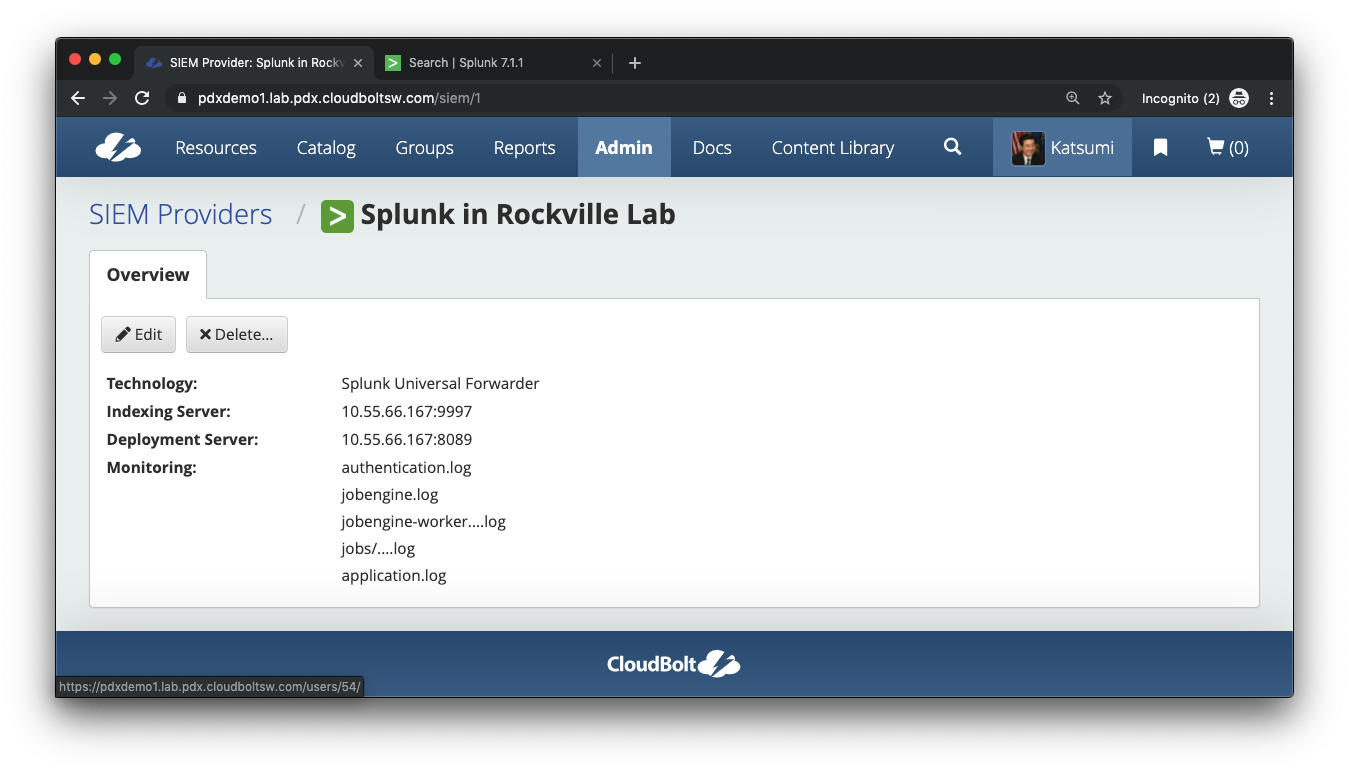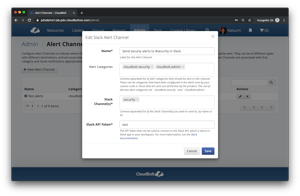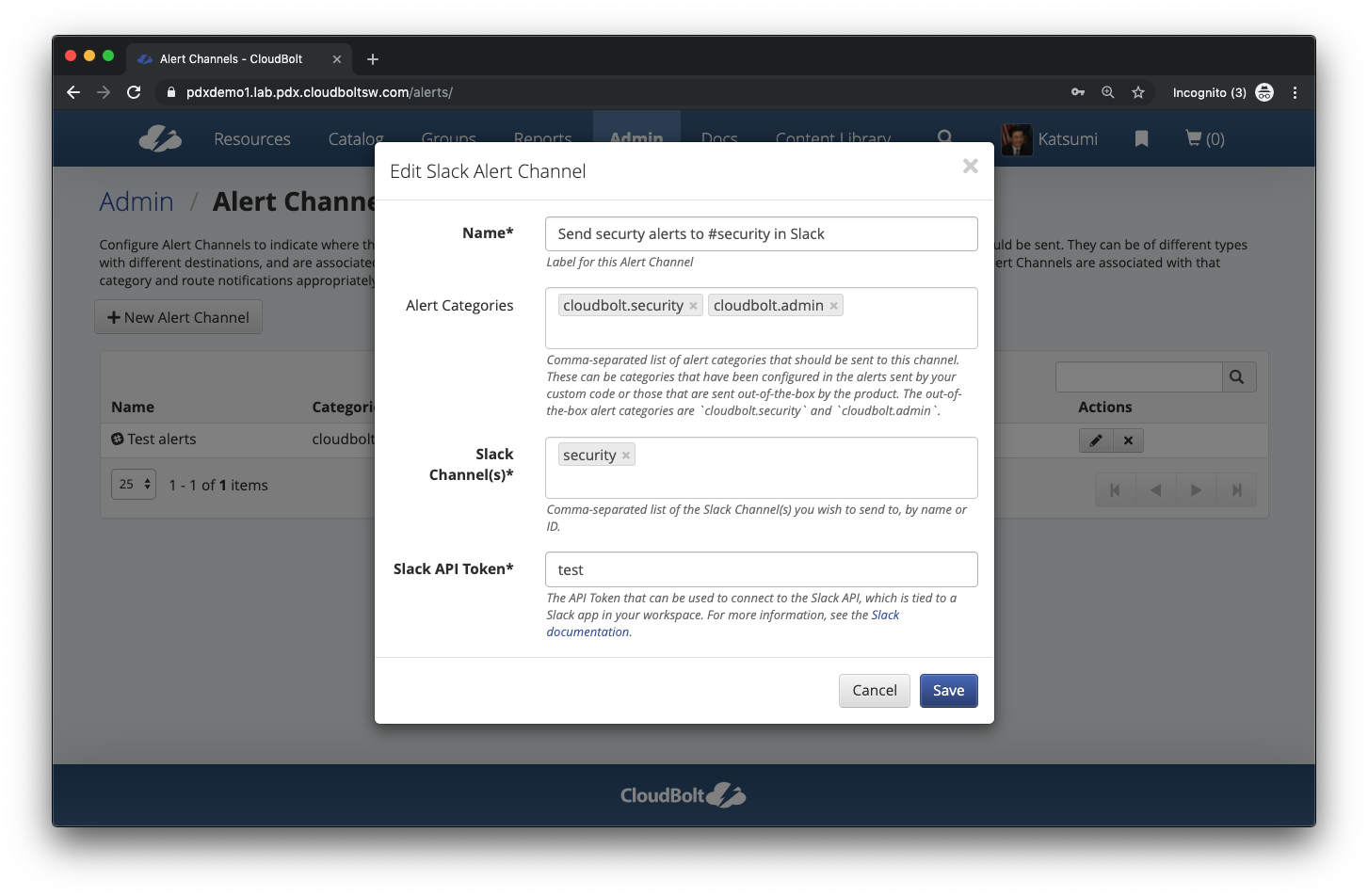CloudBolt 9.3
It’s time to accelerate your hybrid cloud.
Easily integrate your emerging technologies—anything with an API—to unify your tools and platforms in a multi-cloud orchestration platform.
With our CloudBolt 9.3 release, enterprises can consume IT services seamlessly. This new update enhances user experience, platform navigation, security, and integrations.
Upgrade to the latest version of CloudBolt now!
Explore the benefits of the latest release
ACCELERATE YOUR CONTAINERS JOURNEY
Kubernetes Integration

With the Kubernetes support enhancements, now users can deploy multi-node Kubernetes clusters and container-based applications with just a few clicks. This means faster time-to-market and more time for strategic hybrid cloud initiatives. Manage OpenShift projects, group objects, policies, constraints (i.e quotas) and service accounts through the new Red Hat OpenShift integration with CloudBolt.
AN UNBEATABLE USER EXPERIENCE
![]()

Improved User Navigation
The enhanced user navigation makes the CloudBolt platform more intuitive, helps onboard new users quickly, and drives business value faster. All updates are made at the top-level navigation for better interaction and learn quickly about various sections of the platform.
ENFORCE GOVERNANCE THROUGH CENTRALIZED ORCHESTRATION
Terraform Integration
In addition to calling Terraform plans from CloudBolt, developers can now call and invoke a service action in CloudBolt through Terraform. For example, enterprises can now deploy a resource in a public cloud, track resource usage and take day-2 actions while maintaining complete control through RBAC.
SIMPLIFY MULTI-CLOUD MANAGEMENT WITH SINGLE PANE OF GLASS
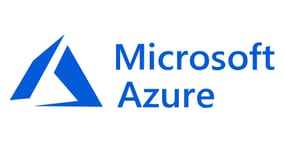
Microsoft Azure Environment Management
Consume Microsoft’s Shared Image Galleries directly from the CloudBolt platform. Manage these images globally by grouping and versioning while sharing them across subscriptions and tenants using Azure Role-Based Access Control (RBAC). Additionally, simplify accelerated networking and management of enterprise-level Azure environments using CloudBolt.
ACCELERATE WORKLOAD DELIVERY THROUGH SELF-SERVICE IT
Veeam, SolarWinds IPAM, and Cisco UCS Integrations

![]()
New Veeam UI extension enables users to view a server’s backups stored in Veeam and restore them to AWS or Azure. SolarWinds IPAM integration automates the IP address assignment for a new server. And, with Cisco UCS integration self-service provisioning of service profiles is now possible with just a few clicks.
MANAGE CLOUD SPEND AND SECURITY WITH BUILT-IN GUARDRAILS
CloudBolt has simplified Single Sign-On (SSO) configuration for customers. This configuration provides a guided experience for easier setup. Also, CloudBolt integrates with any SAML2 compliant identity provider to support SSO. This release provides additional support for Okta and more choices to follow in subsequent releases.
See CloudBolt in action
Ready to see exactly what CloudBolt can bring to your enterprise? Sign up for your personalized demo today.
Our Solution Overview
Download our CloudBolt Solution Overview to see what CloudBolt can bring to your hybrid cloud strategy.
How CloudBolt compares
See how CloudBolt stacks up to other solutions in this comparison of features and capabilities.
